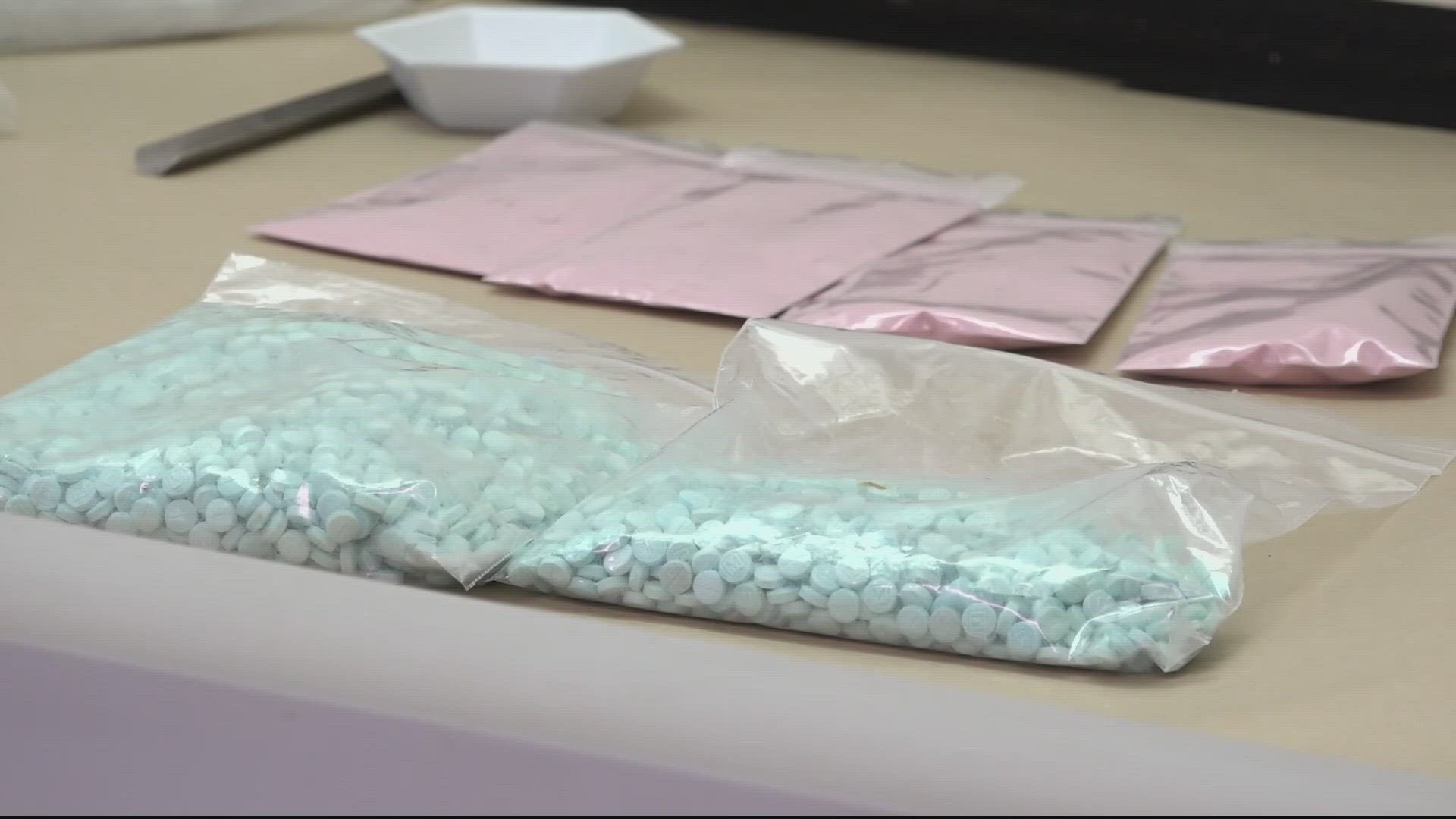BURTONSVILLE, Md. — More than 100,000 people in America died of a drug overdose in 2021, according to the Centers for Disease Control and Prevention (CDC).
Synthetic opioids, like fentanyl, were by far the most common culprit. 80,411 of those overdose deaths came from synthetic opioid use in 2021, federal data shows.
Montgomery County leaders are working to keep students from becoming a part of that statistic.
Part of that work took place Saturday morning at Paint Branch High School, where parents and students were invited to attend workshops focused on combating opioid use.
Some sessions focused on teaching attendees how to use the opioid overdose-reversing medicine Naloxone. Online instructions from the CDC can be found here.
Other workshops emphasized ways parents can talk to their kids about drug use.
The training comes as federal data shows fatal opioid overdoses have skyrocketed over the last decade. In 2010, the CDC reports there were about 21,000 fatal "opioid-involved" overdoses. By 2021, that figure was 80,411.
Ava Stoddard, an eighth-grader at Farquhar Middle School, attended Saturday's event with her dad Earl.
"It's scary to see how many deaths there have been and how many situations people have been in," she said. "But also it's something we have to talk about in this generation."
As Paint Branch High School principal Afie Mirshah notes, that's especially true because it's almost impossible to tell what's really in a drug acquired on the street.
"We don't have quality control in these illegal substances and this is not the time to experiment," said Mirshah. "The safest thing to do--and I hate to go back to campaigns from the '80s--but just say no."
Laura Mitchell, a cofounder of Montgomery Goes Purple and an organizer of Saturday's event knows how hard battling opioid dependency can be.
"I have walked this path with my youngest son," she said.
"He was 15," she added. "Hurt his back. Got a pill."
They worked as a family to help him for years, she said. But progress is possible.
"He's seven and a half years in recovery now," Mitchell said. "Bought a house. Got married. Electrician. Raising his child...There's hope. There is hope on the other side. Where there's breath, there's hope."
If you or someone you know is struggling with addiction, you can call the 24/7 national helpline for treatment referral and information at 1-800-662-HELP (4357).

